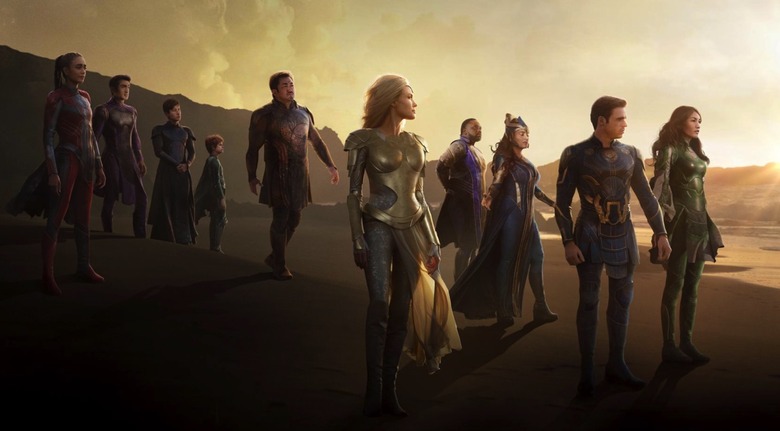How Eternals Causes Serious Problems In The MCU Multiverse
Eternals is out in theaters, and it's definitely a Marvel movie you should see despite the unnecessary controversies that somewhat plagued the release. It's not a perfect superhero movie, but there's probably no such thing. But it's an MCU adventure, unlike anything we've seen so far. It's the origin story of no fewer than ten superheroes that we have to get used to in one movie, rather than a series of films building up to this massive threat they have to deal with. Then again, there's no way to have the heroes introduced in other movies because these aren't your average Avengers. They're immortal beings capable of wielding cosmic energy beyond what most Avengers can do. Yet they've never been involved in defending humans the way the Avengers did. So there's no natural way to build the Eternals franchise within the MCU by introducing a smaller number of heroes at a time.
Eternals is also a big movie for representation, something that Disney has only started embracing. There's been plenty of pushback for that, including censorship in some international markets. But Marvel is hopefully just getting started, given that the X-Men are yet to arrive. And Eternals brings over the vision of an Oscar-winning director, who will hopefully work on other MCU projects down the line.
What's great about the movie is the way it complicates Marvel's multiverse. Eternals is Marvel's 26th MCU movie, but it changes everything. Before I get into this spoiler-y review of the concepts Eternals brings to the table, I'll warn you that multiple spoilers are inbound. It's not just from Eternals, but also Avengers: Endgame, Loki, and What If...?. You'll want to see all these MCU titles, preferably in chronological order, before moving to what follows below.
The MCU's puny Avengers
The Avengers are a formidable team when willing to work together. They've scored a massive win for the entire universe in Endgame. They beat Thanos (Josh Brolin), regrouping against all odds after suffering a massive defeat. Marvel needed 20 movies spread over a decade to get to the Infinity War and Endgame epic conclusion. But it then made us realize how small the Avengers are in the grand scheme of things. And it did it in only one year, with the help of Loki, What If...?, and — now — Eternals.
The multiverse is here, and it's filled with threats much bigger than Thanos. Threats that future Avengers teams will have to deal with — and some Eternals better stick by.
But Eternals also complicates the multiverse to the point where Marvel will need to come up with some clever explanations for everything.
Infinity Stones and the Eternals
We have to forget everything about the Infinity War. Marvel made that point clear in Loki, where they're glorious paperweights with no power. That's to say they don't work at the TVA, which is probably located out of time — or in the Quantum Realm. The presence of the Infinity Stones in the universe is what allows that universe to exist. They've been there since the beginning. And in the MCU timeline, they've been shredded to atoms. Thanos does that early in Endgame, but the Stones remain dispersed in the universe as cosmic dust.
Going forward, the MCU story won't be about the Infinity Stones. But we can't forget they've existed alongside for eons, just like the Celestials from Endgame or the He Who Remains variation of Kang (Jonathan Majors) in Loki.
If you've seen Eternals, you've probably realized the Infinity Stones aren't enough. They need to exist to keep the MCU reality out of the darkness. But without the Celestials, there will be no actual light in the universe to sustain life.
The Celestials aren't exactly the Eternals villains
Arishem (David Kaye) is the Celestial in charge of everything. He appears to be the real villain of the movie. And that's what we thought after reading the plot leaks in the previous weeks. But that's not entirely true. He explains to Sersi (Gemma Chan) that the Celestials are vital in the universe's life cycle.
A Celestial consumes the energy of an entire planet when rising from it, destroying it in the process. Tiamut, the Celestial buried inside Earth, would have done the same thing to the planet if it were not for the Eternals. But once a Celestial rises, after millions of years of growing inside the planet, they build life. A celestial will make suns and gravity out of that energy. In turn, this will create other galaxies, and life will emerge on other planets. Other Celestial eggs will then reach some of those planets. And other Eternals will have to ensure that intelligent life thrives on that planet to keep this circle of life in place.
Without Celestials, there would be no life in the universe. That's even though Infinity Stones would still bring equilibrium to it and protect it from other threats.
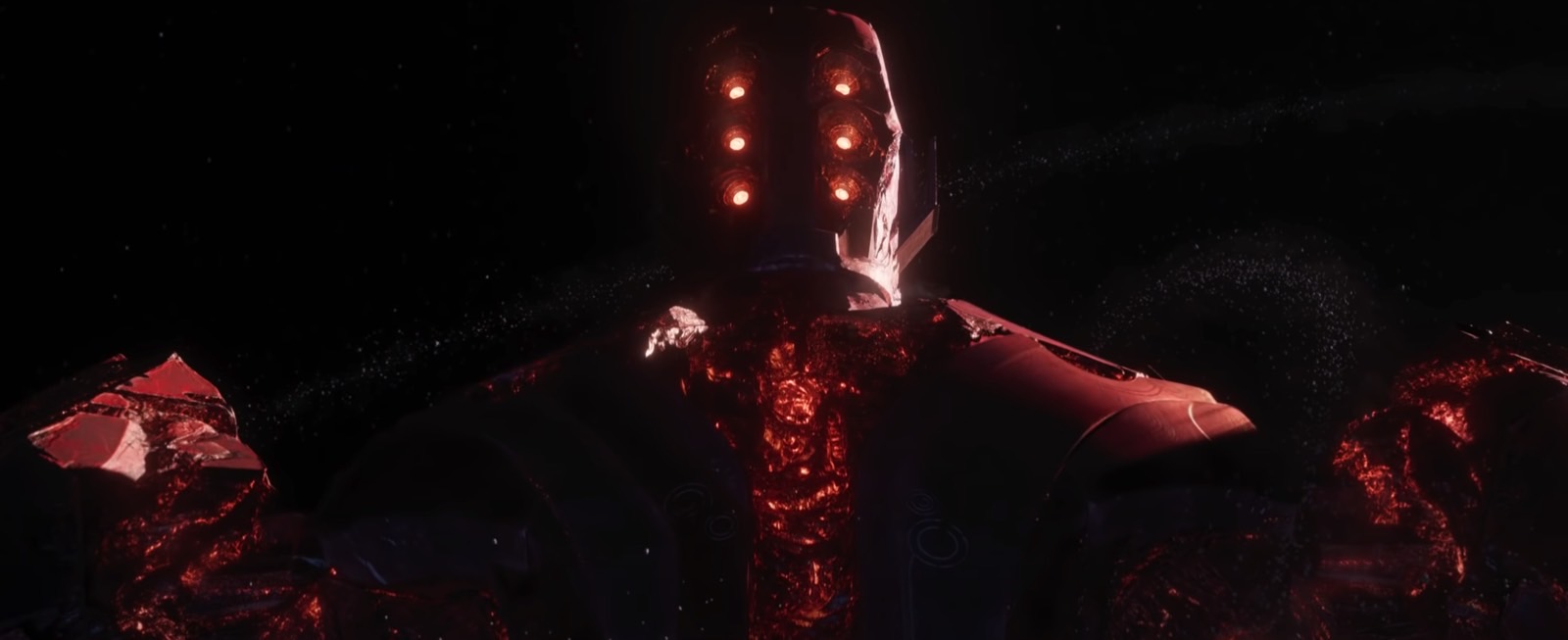
Arishem, a Celestial in final Eternals trailer.
Arishem's power is relative
Yet, as powerful as Celestials might be, they can't be present everywhere. That's clear considering what happens in Eternals. They devised experiments to help out with their chores in the form of the Deviants and the Eternals. We now know that both have failed.
Arishem might create life in the universe and the tools to support it. And he has the power to destroy Earth. That's very clear from that amazing scene a the end of the movie where people everywhere on Earth would have seen the Celestial appear in outer space.
But he wasn't able to stop Thanos from wiping up half of life in the entire universe of this timeline. And Eternals really puts things in perspective. Thanos and his genocide actually delayed the emergence on Earth, slowing down Tiamut's growth. The same thing might have occurred on other planets where half of intelligent life disappeared.
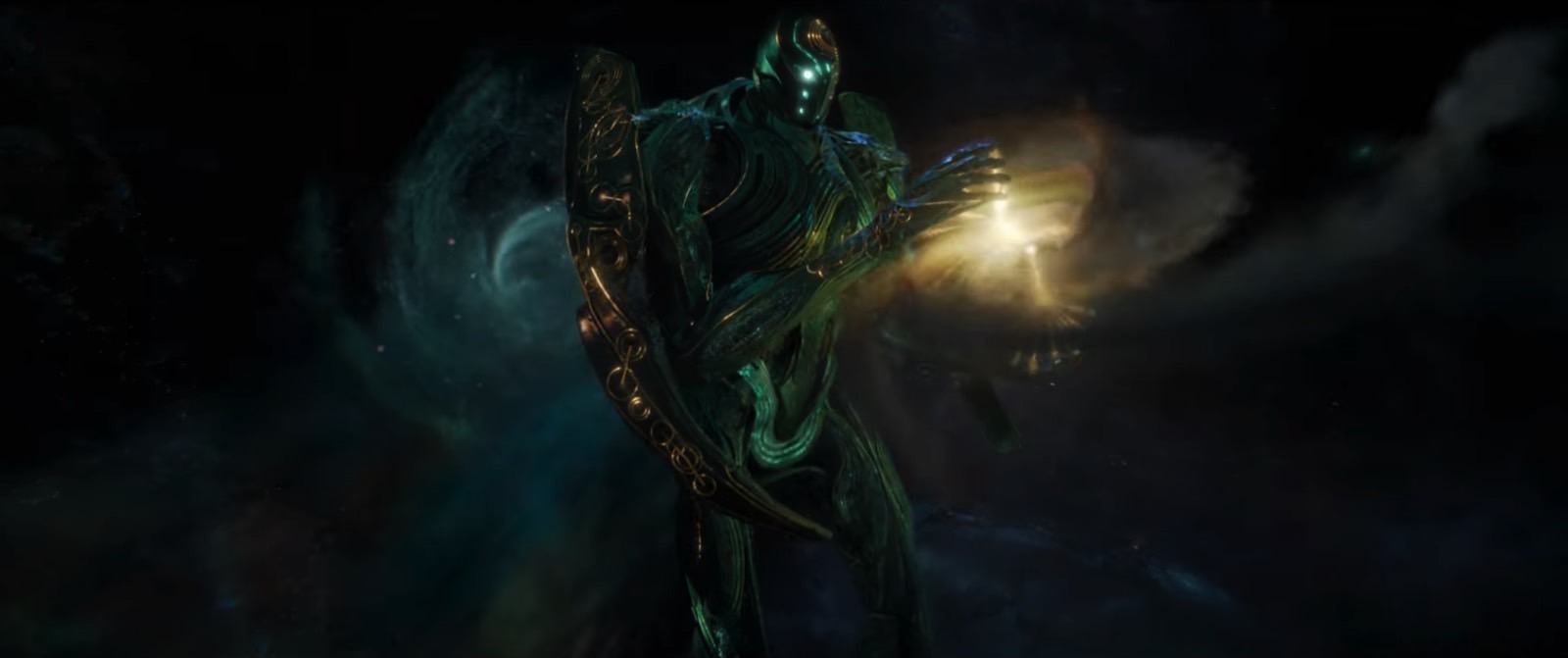
An Eternal creating a galaxy in Eternals final trailer.
Kang might still be the MCU's biggest threat
It's not enough that we have to juggle Infinity Stones and Celestials to understand how and why the universe exists in the MCU. We get multiple strands of that thanks to the multiverse, which is a massive theme of Phase 4.
As we have seen in Loki, Kang is an incredibly fierce enemy. It makes Thanos look small by comparison. Even the Ultron that we got to see in What If...?, itself a more significant threat than Thanos, pales in comparison to Kang. That's because Kang has a power none of the other villains have. He will develop technology that allows him to micromanage the flow of events.
Everything that happened on Earth right up until the end of Endgame happened because He Who Remains ordered it that way. The first thing out of his control might be Captain America's (Chris Evans) dance with Peggy Carter (Hayley Atwell) at the end of the movie. That's the kind of event the TVA would punish, as it would create branches. And the MCU's timeline gets to branch out only after Loki (Tom Hiddleston), and Sylvie (Sophia Di Martino) kill the mild version of Kang in the Loki finale.
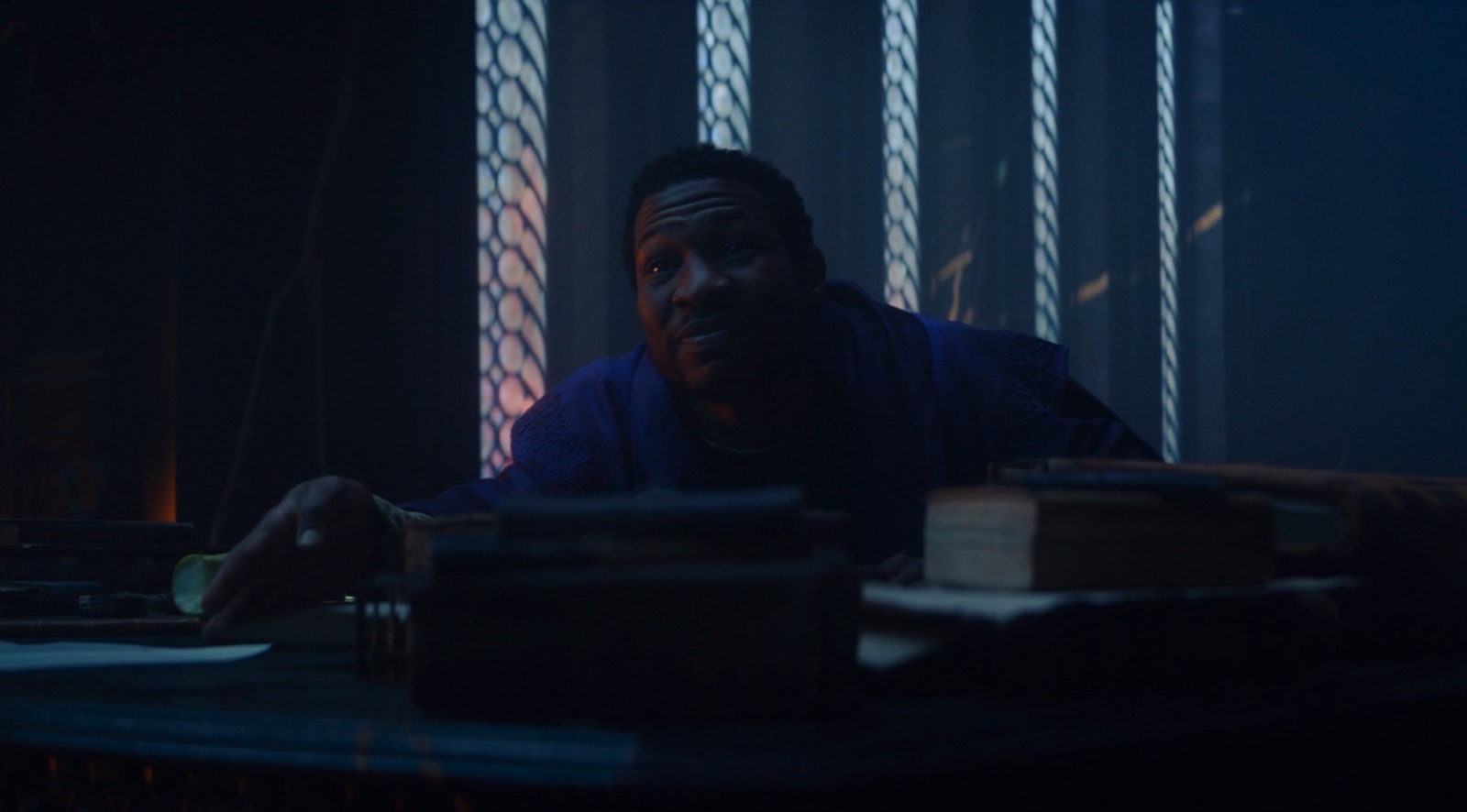
Kang (Jonathan Majors) in Loki finale.
Can Kang outmaneuver the Celestials?
With that in mind, I can't but wonder whether Kang can actually stop any and all emergence events. The Celestials might be the makers of life in the universe, having the Eternals babysit those eggs. And the Infinity Stones are needed in a timeline to stabilize it. But Kang could effectively mess with the emergency by micromanaging time. After all, Kang allowed Thanos to wipe up half of human existence in Infinity War. He could have stopped that if it served his interests. And with that, it delayed Tiamut's arrival. One could argue that Kang made sure to pause the emergence by five years so the Eternals could reach a point where they would revolt.
Let's not forget that Kang has to be born in the third millennia. And that can't happen if the planet is destroyed by then.
What about the Eternals in the MCU's multiverse?
My Eternals questions don't stop there. Now that we're starting to explore the multiverse, I can't but think that each universe must have its own Eternals group. And its own Celestials. The latter are super-powerful beings who make life possible in those universes. So it would make sense for them to be aware of the multiverse. But what if they don't?
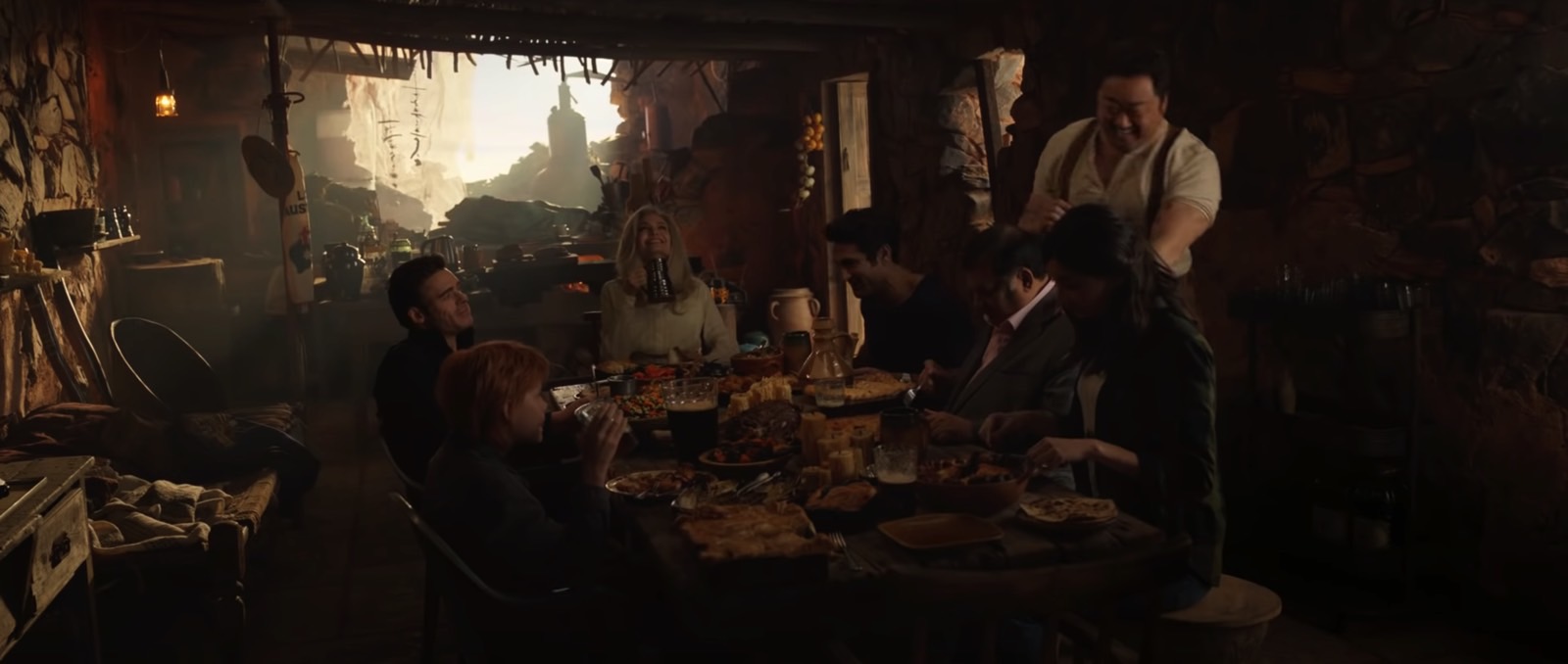
From left to right: Sprite (Lia McHugh), Ikaris (Richard Madden), Thena (Angelina Jolie), Kingo (Kumail Nanjiani), Gilgamesh (Don Lee), King's valet (Harish Patel), and Sersi (Gemma Chan) in Eternals teaser trailer.
When Arishem explains to Sersi what the Celestials do, he calls this universe as "our universe." It's not like Arishem sits out of time like Kang or The Watcher (Jefferey Wright). Time is a real thing for Celestials, which actually count millions of years between emergences. They're vested in this universe, fulfilling their crucial role. They can't be witnessing the entire thing from somewhere out of time like Kang. They have a base, the World Forge, which is somewhere in this universe.
Similarly, other Celestials and Eternals might be responsible for the different realities that coexist in the multiverse alongside the MCU's primary reality.
The Eternals is a must-watch MCU movie
With all that in mind, Eternals is a must-watch movie. Marvel teased that the picture will change everything in the MCU, putting things in a different perspective. And that's precisely what the film does. Things are getting a lore more complicated, and it'll be quite interesting to see what's coming next. And how the "puny" Avengers will be able to deal with any of this. If there's one thing missing from the Eternals is some sort of cameo reaction from the Avengers on duty when the emergence happened.
We'll need more explanations along the way from future adventures featuring Eternals. And from the looks of those post-credits scenes, we're certainly going to see more Eternals in the MCU.
